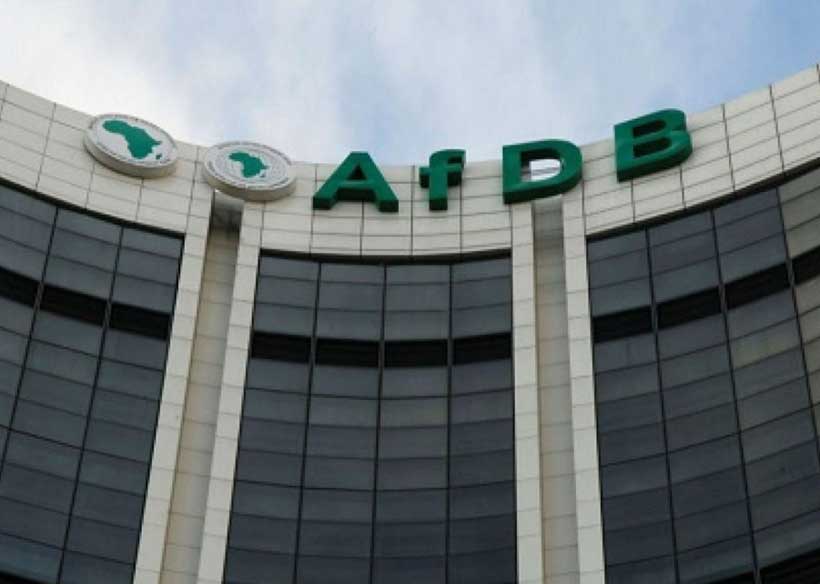AfDB Leaders in Berlin Spotlight Germany’s Role in Africa Fund Replenishment
The Berlin visit coincided with the European presentation of the Bank’s flagship 2025 African Economic Outlook Report, themed “Making Africa’s Capital Work Better for Africa’s Development.”

- Country:
- Germany
A high-level mission by executives of the African Development Bank Group (AfDB) to Berlin has reinforced Germany’s crucial role in supporting Africa’s development through the African Development Fund (ADF), the Bank’s concessional lending arm. The visit, led by Prof. Kevin Chika Urama, AfDB Chief Economist and Vice President, also featured the German presentation of the 2025 African Economic Outlook Report (AEO).
Strengthening Ties with Germany
Prof. Urama was joined by Ms. Hassatou N’Sele, AfDB Vice President for Finance and Chief Financial Officer, in a series of bilateral meetings, policy dialogues, and public engagements with senior German officials. These included representatives of the Federal Ministry for Economic Cooperation and Development (BMZ), the Federal Chancellery, and the Konrad Adenauer Foundation.
The AfDB delegation also engaged with Germany’s private sector leaders, academia, and civil society organizations, emphasizing Africa’s development priorities in the face of evolving global challenges. The mission was undertaken at the invitation of Mr. Martin Kipping, AfDB Executive Director representing Germany, Luxembourg, Portugal, and Switzerland.
The 2025 African Economic Outlook
The Berlin visit coincided with the European presentation of the Bank’s flagship 2025 African Economic Outlook Report, themed “Making Africa’s Capital Work Better for Africa’s Development.” The report had been formally launched at the Bank’s Annual Meetings in May.
German policymakers and business leaders welcomed the report’s findings as timely and strategic, given mounting global uncertainties such as geopolitical tensions, trade wars, currency volatility, and declining development aid flows. Participants commended the AEO for offering practical policy guidance on mobilizing Africa’s domestic resources and capital for sustainable growth.
Policy Dialogue and Recommendations
In discussions, participants noted recurring challenges for African governments, including:
-
Currency devaluation and exchange rate instability.
-
Inconsistent regulatory environments deterring investment.
-
Weak institutional governance and limited transparency.
-
Gaps in knowledge and institutional capacity to manage complex economic risks.
To overcome these barriers, German officials and private sector representatives emphasized the need to de-risk African markets and strengthen Africa’s “soft infrastructure” — governance, institutional frameworks, and policy stability — alongside physical infrastructure.
Prof. Urama echoed these priorities during an interview with Africa-Table Media, a German outlet focusing on African investment:
“We should focus on the soft factors to secure the political environment, the market environment, and the public policy space, thus facilitating the private sector’s entry—rather than using ODA funds solely for physical infrastructure.”
Germany’s Role in the African Development Fund
Germany’s long-standing partnership with Africa, particularly through the ADF, was central to the mission. Since 1983, Germany has been one of the Fund’s largest and most consistent supporters, contributing significantly to successive replenishment cycles.
Prof. Urama highlighted this in Berlin:
“Germany has a key role to play here: A continued strong commitment to replenishing the African Development Fund would be a significant contribution to securing development progress in fragile African economies.”
The mission also served as part of AfDB’s preparations for the 17th replenishment of the African Development Fund (ADF-17), with the final pledging session scheduled for December 2025.
Looking Ahead
The AfDB delegation’s engagements in Berlin underscored the strategic importance of German partnership in shaping Africa’s development trajectory, not only through concessional finance but also via knowledge exchange, technology transfer, and private sector engagement.
With trillions in global finance being realigned in response to climate change, economic shifts, and geopolitical instability, the AfDB emphasized that Africa must leverage its domestic capital, renewable energy potential, and young workforce. Germany’s support, both financial and strategic, is seen as pivotal in ensuring Africa can unlock inclusive growth, achieve the Sustainable Development Goals (SDGs), and build resilience against global shocks.
As AfDB moves closer to ADF-17, Berlin’s reaffirmation of support signals a strong partnership to ensure Africa’s development funding is secured at a time of mounting global challenges.










